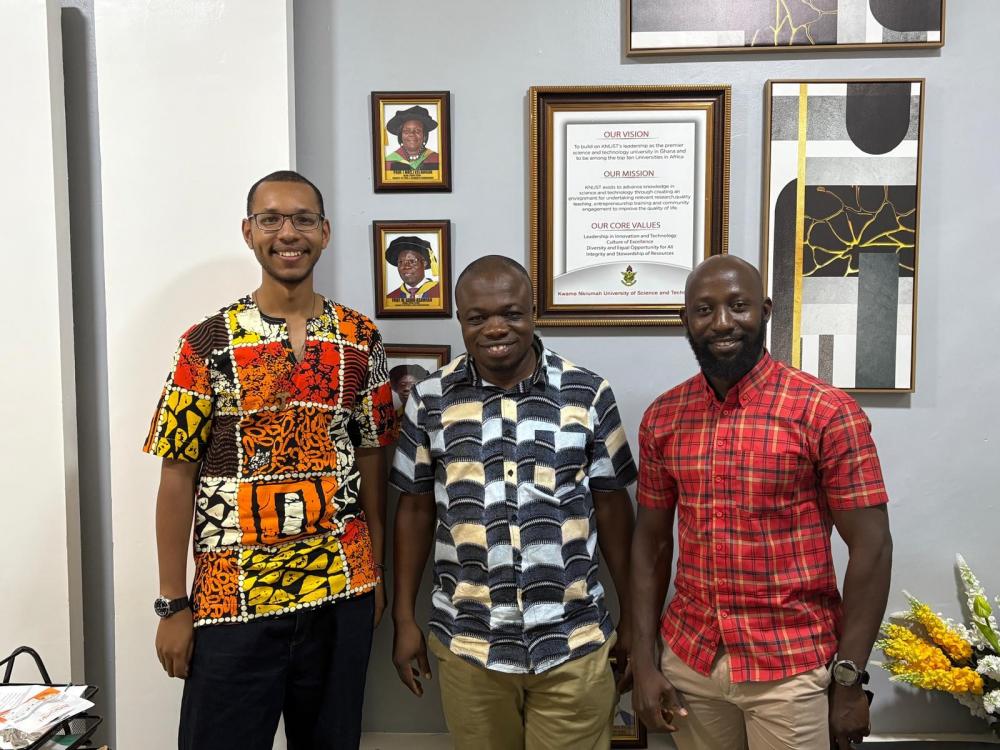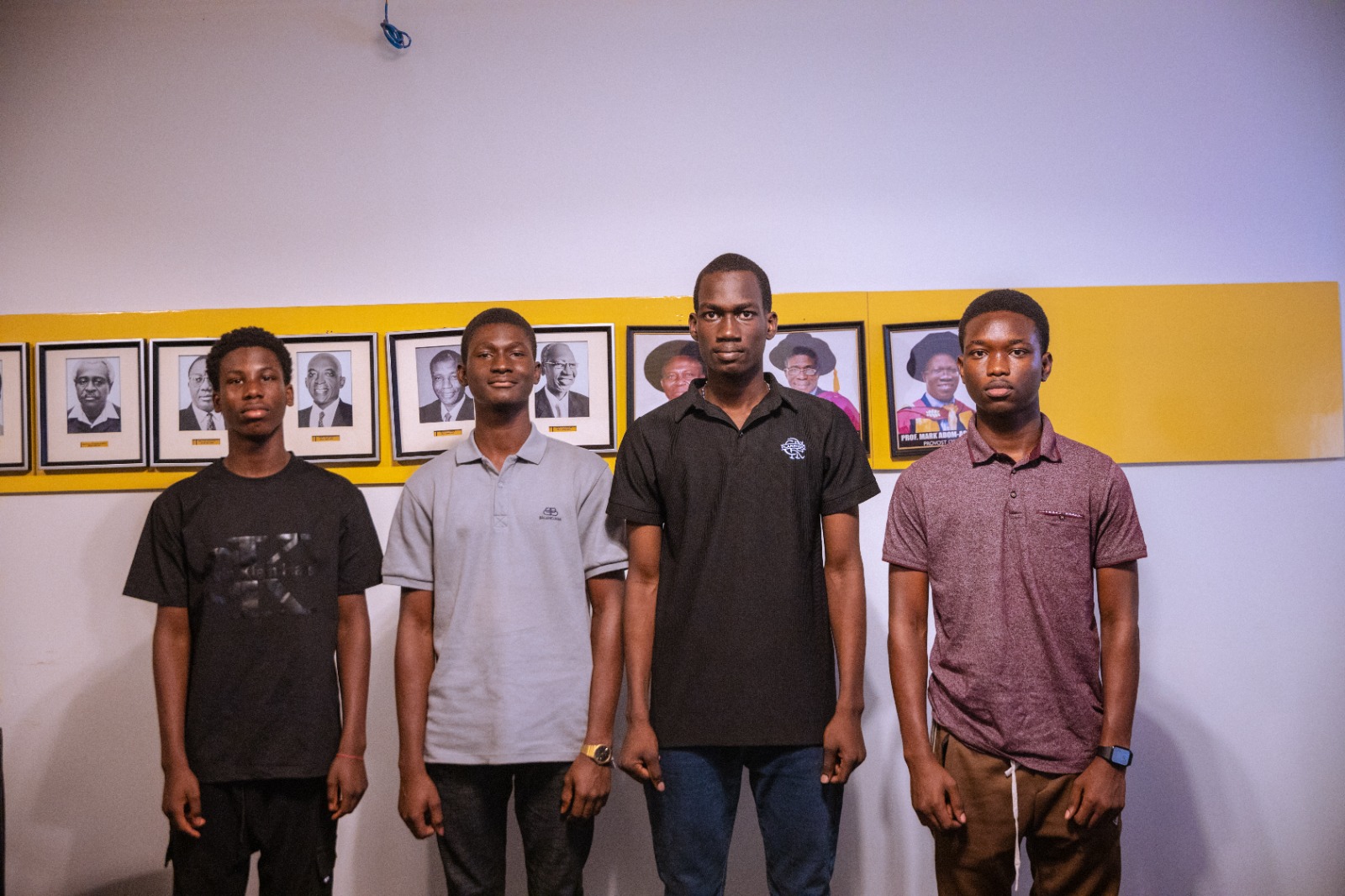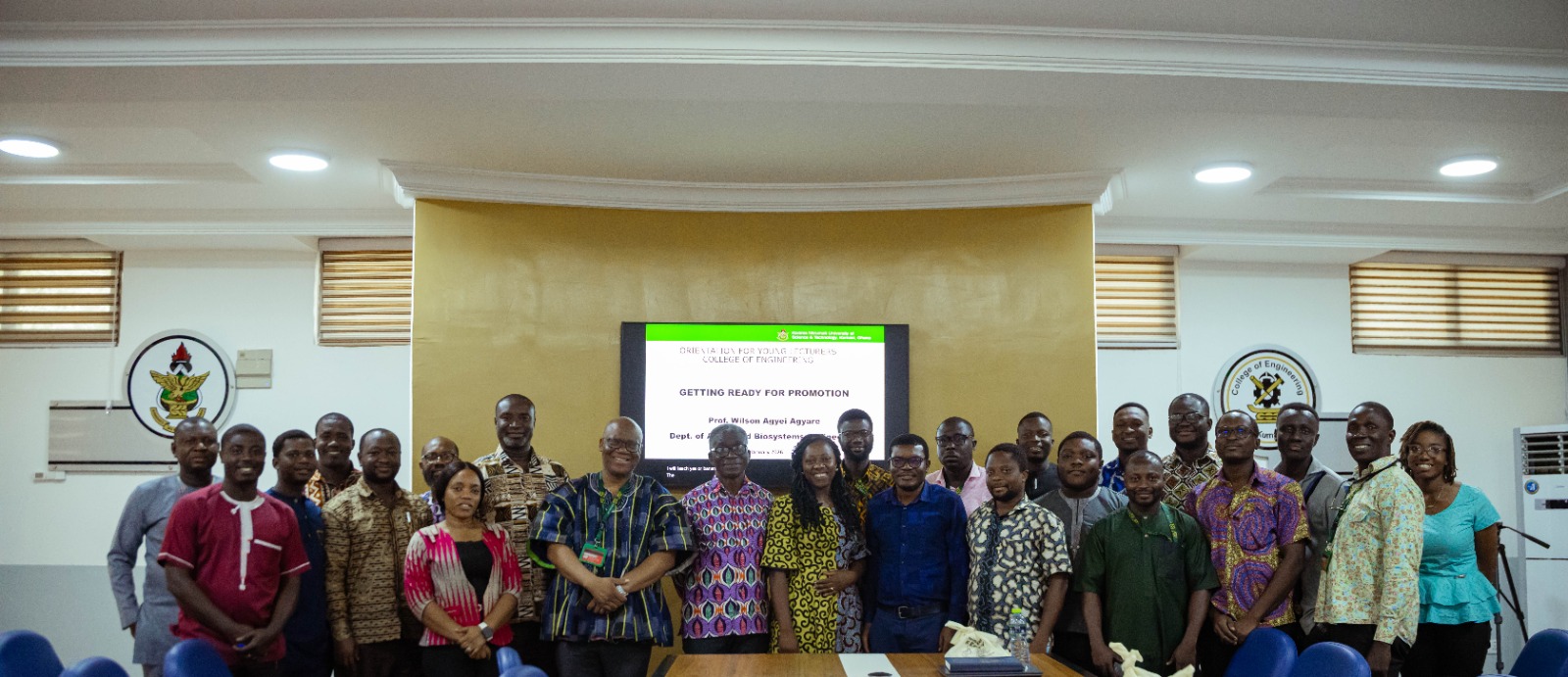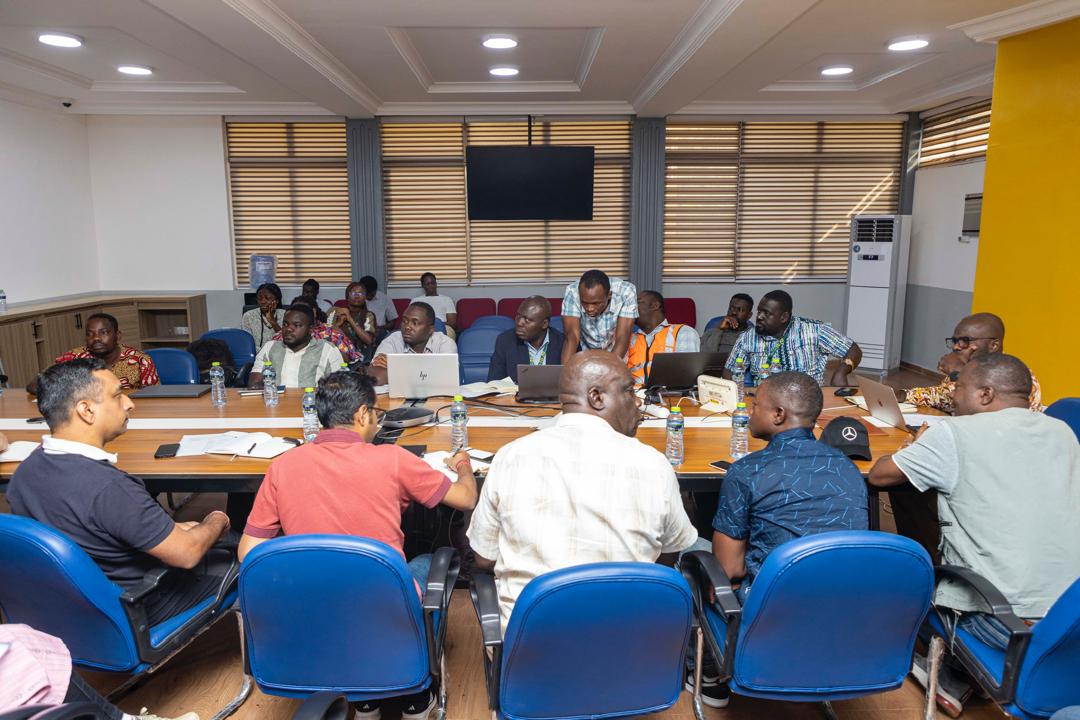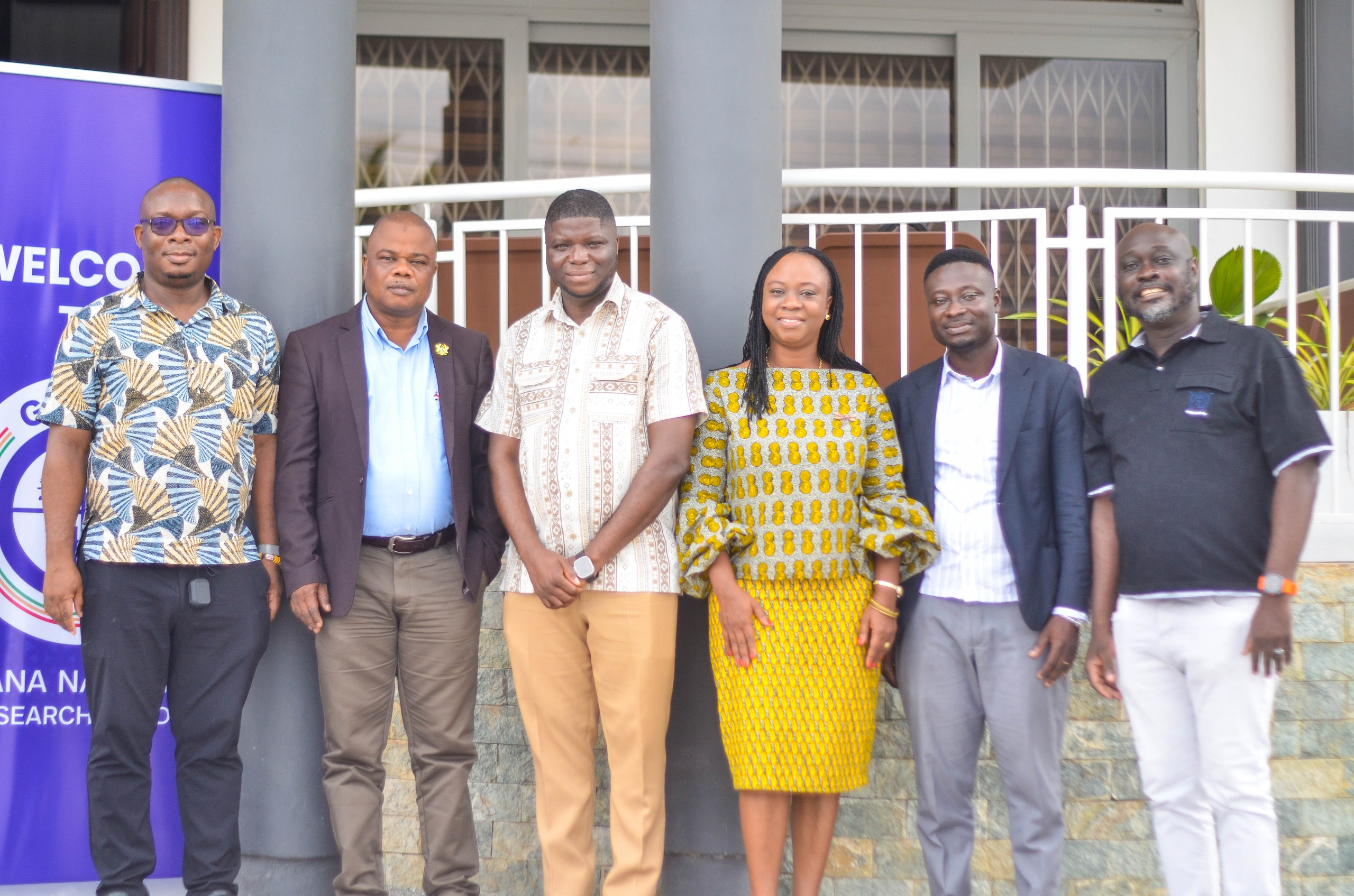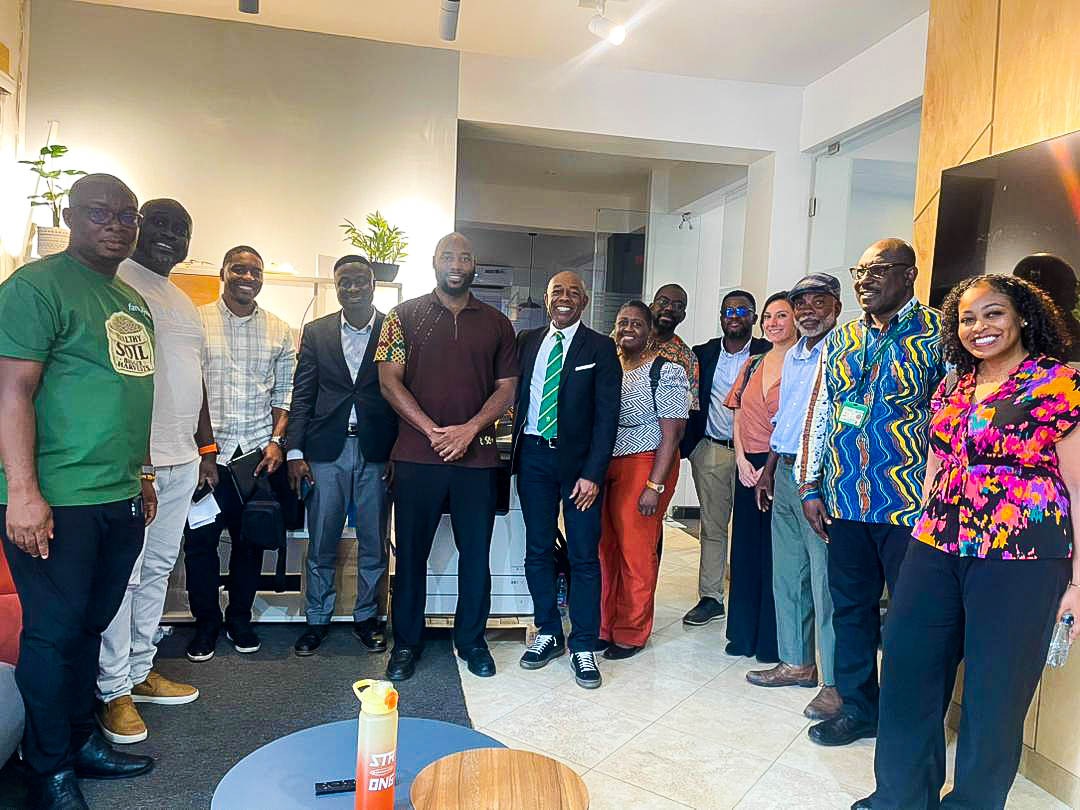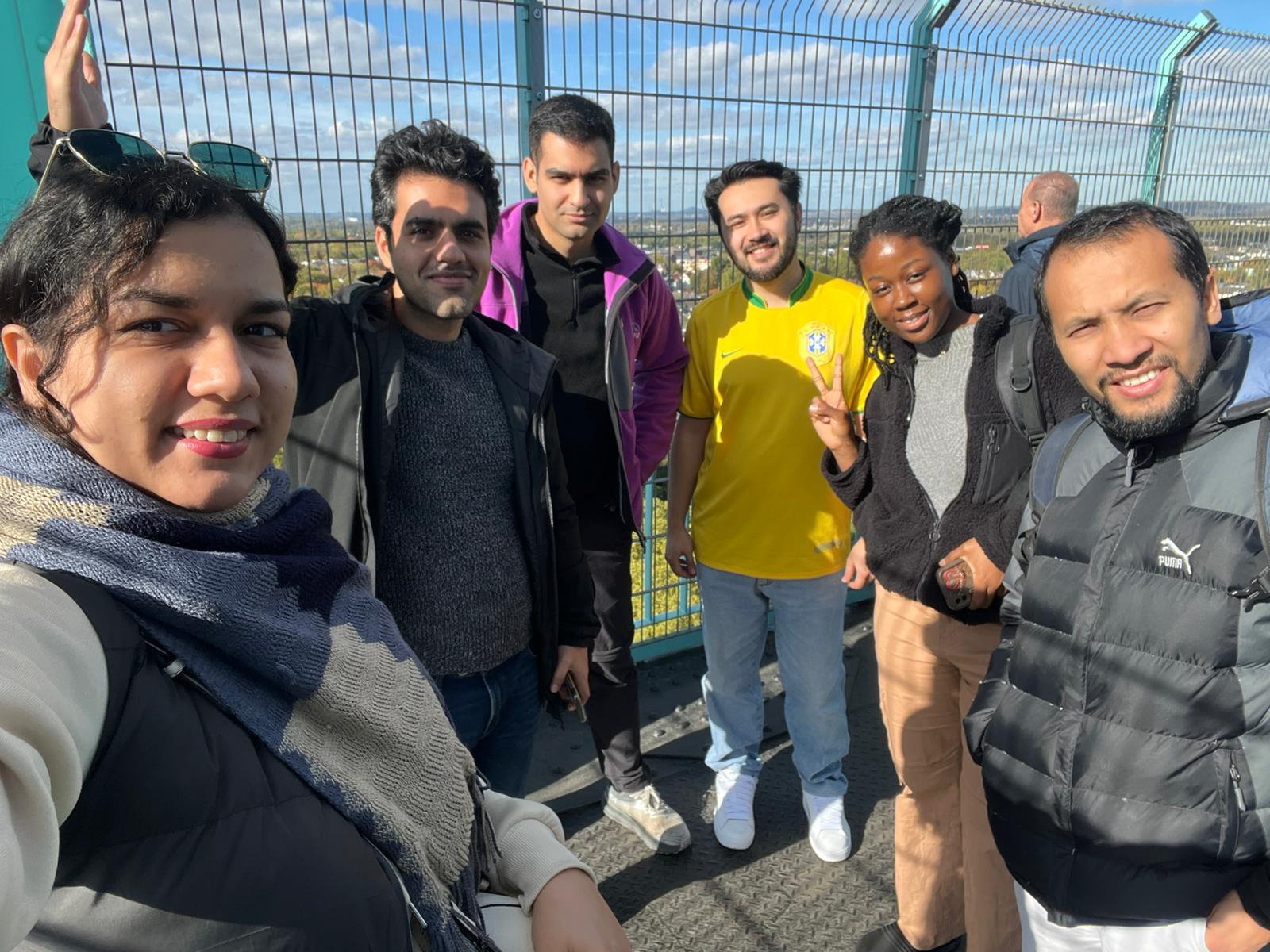As part of a growing collaboration between the University of Southampton (UoS) and Kwame Nkrumah University of Science and Technology (KNUST), two PhD candidates; Dion George and Matthew Abutunghe from UoS’s School of Geography and Environmental Science visited KNUST’s Department of Geomatic Engineering from June 15 to July 6 2025.

Dr. Kwame Obeng
The academic visit followed Dr. Kwame Obeng’s earlier trip to Southampton, aimed at strengthening research partnerships, co-supervision opportunities, and academic exchange between the institutions.
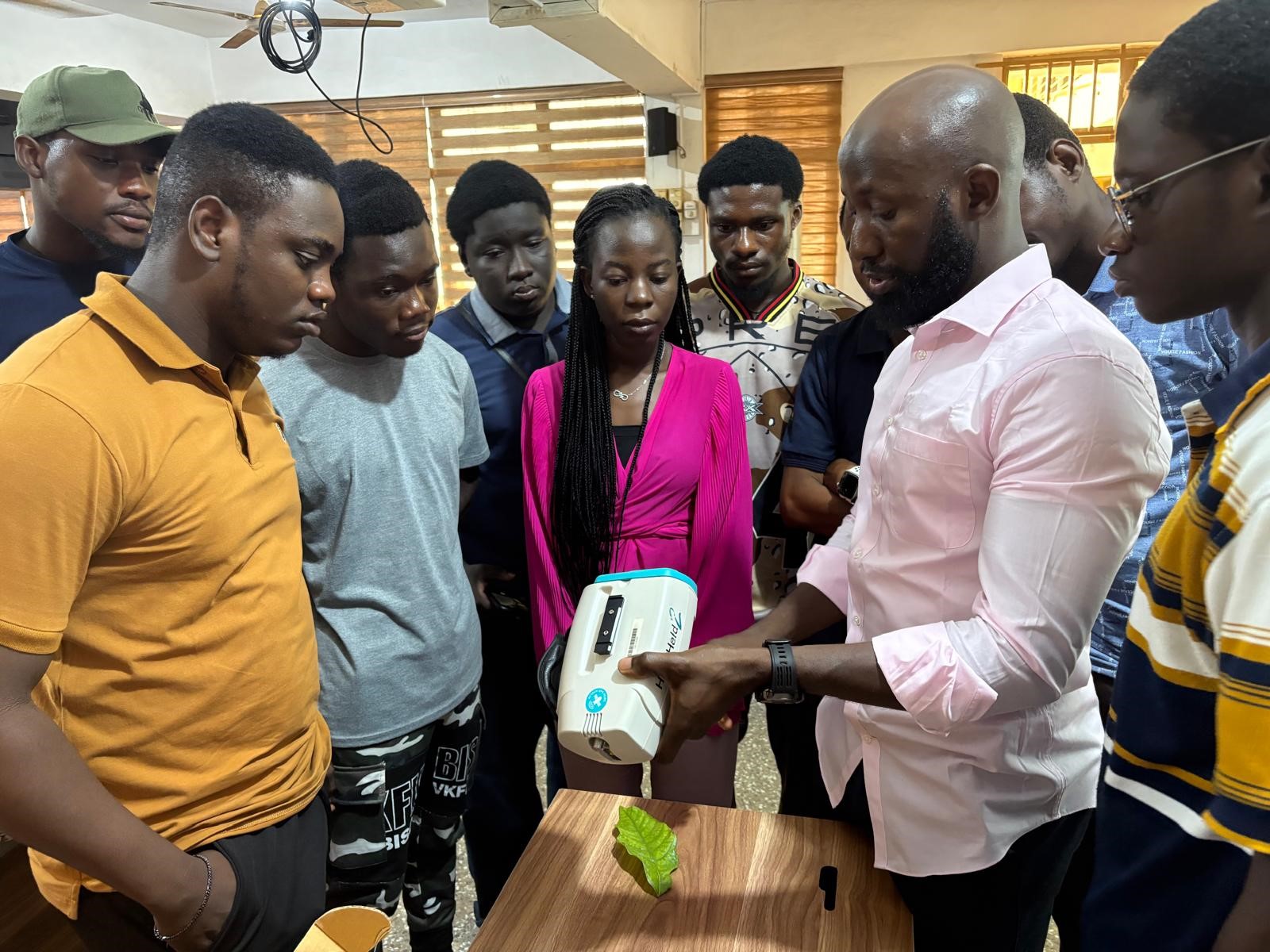
During their three-week stay, the visiting researchers participated in lectures, led hands-on practical sessions, and shared insights from their doctoral work. One of their workshops, titled More than Maps, introduced students to cloud-based coding tools for geospatial data analysis and demonstrated the use of leaf spectrometers and chlorophyll meters to assess crop health.
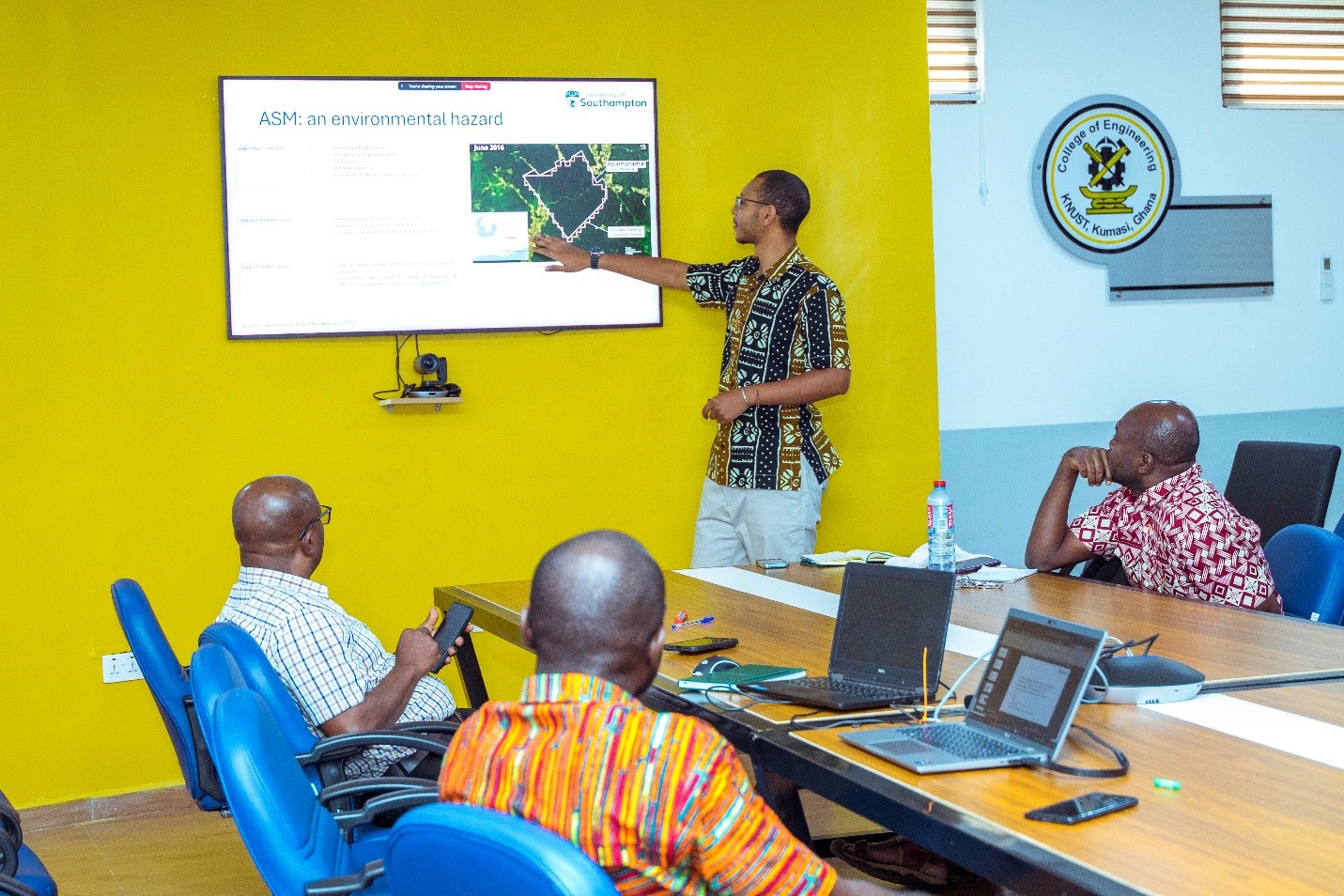
Dion George also delivered a PhD progress presentation focused on his research in detecting artisanal and small-scale mining (ASM) using satellite imagery and deep learning. He showcased a custom U-Net model trained on over 5,000 manually labeled ASM sites in Ghana, highlighting early success in detecting mining activity and its environmental impact.
“ASM is now producing more gold than large-scale mining in Ghana,” George noted, “but the environmental cost—land degradation, water pollution, and heavy metal contamination—remains largely under-addressed.”
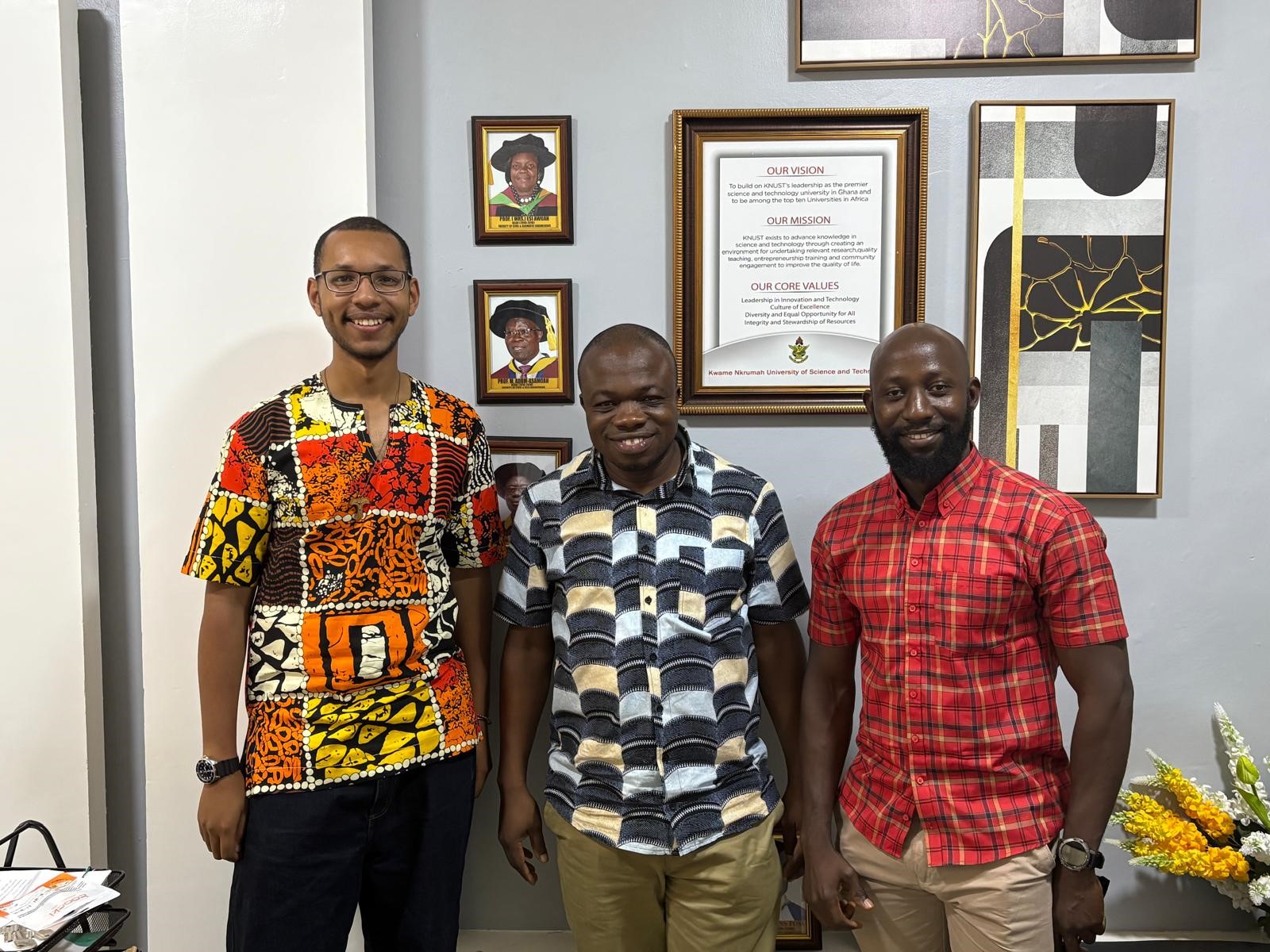
Matthew Abutunghe’s research explores the spatio-temporal spread of Cocoa Swollen Shoot Virus Disease in Ghana using remote sensing, with the goal of improving monitoring and intervention strategies.
The visit also reinforced the practical link between Deep Learning, geospatial science, and real-world environmental challenges in Ghana and beyond.
As part of a growing collaboration between the University of Southampton (UoS) and Kwame Nkrumah University of Science and Technology (KNUST), two PhD candidates; Dion George and Matthew Abutunghe from UoS’s School of Geography and Environmental Science visited KNUST’s Department of Geomatic Engineering from June 15 to July 6 2025.
Dr. Kwame Obeng
The academic visit followed Dr. Kwame Obeng’s earlier trip to Southampton, aimed at strengthening research partnerships, co-supervision opportunities, and academic exchange between the institutions.
Students with one of the Researchers
During their three-week stay, the visiting researchers participated in lectures, led hands-on practical sessions, and shared insights from their doctoral work. One of their workshops, titled More than Maps, introduced students to cloud-based coding tools for geospatial data analysis and demonstrated the use of leaf spectrometers and chlorophyll meters to assess crop health.
Dion during his presentation
Dion George also delivered a PhD progress presentation focused on his research in detecting artisanal and small-scale mining (ASM) using satellite imagery and deep learning. He showcased a custom U-Net model trained on over 5,000 manually labeled ASM sites in Ghana, highlighting early success in detecting mining activity and its environmental impact.
“ASM is now producing more gold than large-scale mining in Ghana,” George noted, “but the environmental cost—land degradation, water pollution, and heavy metal contamination—remains largely under-addressed.”
Dean of Faculty of Civil and Geo Engineering, Prof. Adjei (in the middle), Mathew (to the right), and Dion (left)
Matthew Abutunghe’s research explores the spatio-temporal spread of Cocoa Swollen Shoot Virus Disease in Ghana using remote sensing, with the goal of improving monitoring and intervention strategies.
The visit also reinforced the practical link between Deep Learning, geospatial science, and real-world environmental challenges in Ghana and beyond.


